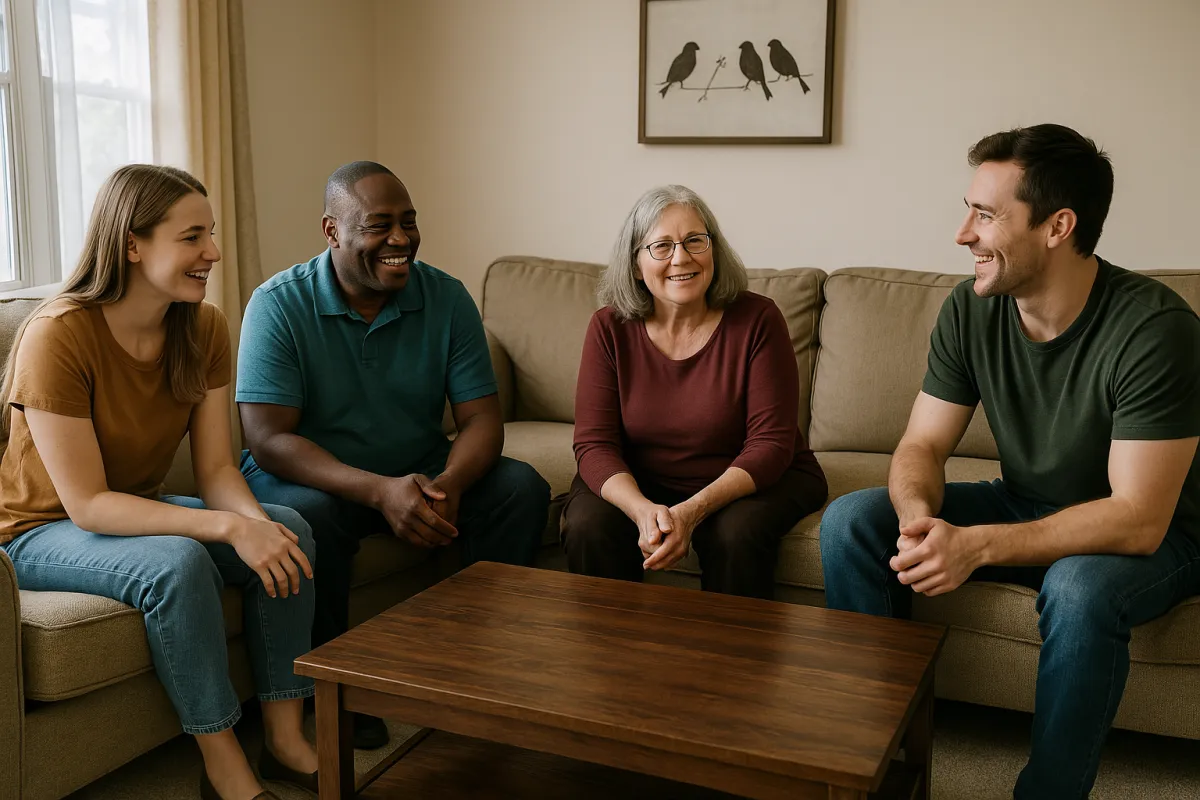Insights & Resources
Supporting Your Journey: Knowledge, Guidance, and Community
Welcome to the All Saints Healthcare blog, where we share valuable insights, practical advice, and inspiring stories to support families and individuals navigating developmental disability services. Our team of experienced professionals regularly contributes articles on topics ranging from waiver application tips to strategies for promoting independence. We invite you to explore our resources, join the conversation, and connect with our community of families and caregivers walking similar paths.

What Is Living in a Group Home Like? A Detailed Look
Living in a group home provides personalized support while fostering independence. These homes offer a community-oriented environment where individuals with disabilities or special needs can thrive.
What does daily life look like? How do residents balance support and independence? This guide explores routines, benefits, challenges, and key factors to consider when choosing the right home.
Understanding Group Homes
Group homes offer residential support for individuals with intellectual, developmental, or physical disabilities and mental health challenges. Unlike larger facilities, they have fewer residents, creating an intimate, family-like setting.
A Day in the Life at a Group Home
Morning Routine
Residents start their day at their own pace, with staff providing assistance as needed. Some require full support with hygiene and dressing, while others need just a reminder. Breakfast is a structured yet relaxed time, promoting stability and routine.
Daily Activities
Residents participate in skill-building activities, such as vocational training, therapy sessions, or community outings, all designed to enhance independence.
Meals and Nutrition
Mealtimes are communal, fostering social connections while ensuring balanced, nutritious meals. Staff accommodate dietary needs and assist with meal prep when necessary.
Evening Relaxation
Evenings are for unwinding, hobbies, or shared activities like movies or arts and crafts. The goal is to provide a welcoming space where residents can relax and recharge.
Benefits of Group Home Living
Personalized Support with Independence – Residents receive care while maintaining control over their routines.
A Strong Sense of Community – Social engagement reduces isolation.
Skill Development – Programs enhance daily living, employment readiness, and social confidence.
Structured Routine – Predictability benefits individuals with developmental disabilities or mental health conditions.
Navigating Challenges
Adjusting to communal living takes time as residents learn to share spaces, respect boundaries, and follow house rules. Support staff ease the transition through structured routines, mediation, and interpersonal guidance.
Financial concerns are another factor, but families can explore government assistance, insurance options, or nonprofit resources to make group home living more accessible.
Finding the Right Group Home
Key considerations include location, staff-to-resident ratio, available services, and overall atmosphere. Families can find the right fit by visiting homes, meeting staff, and asking key questions.
At All Saints Healthcare, we offer group homes in Annandale, VA and Falls Church, VA, providing compassionate, community-focused care. We welcome tours and discussions to ensure the best match for each resident.
Addressing Common Misconceptions
Myth: Group homes limit personal freedom.
Reality: Modern homes prioritize independence and privacy.
Myth: All group homes are the same.
Reality: Each home offers unique programs, care levels, and environments.
Final Thoughts
Choosing a group home is a significant decision. Understanding daily life, benefits, and challenges helps families make an informed choice.
At All Saints Healthcare, we provide compassionate, comprehensive care that fosters independence, community, and personal growth.
Interested in learning more? Contact us today to explore group home living or schedule a visit.
What Our Clients Say About All Saints Healthcare Services
"All Saints has helped my brother gain confidence and independence while providing our family peace of mind. Their staff truly cares about his well-being and goals."
- Family Member
© 2026 All Saints Healthcare Services Inc - All Rights Reserved.
Website Developed by CareGenius.co

